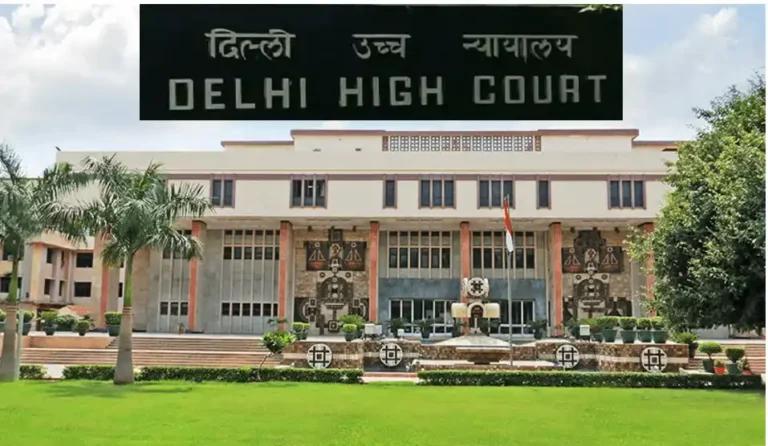The Delhi High Court has held that when an appellate authority restrains the Income Tax Department from taking coercive steps for tax recovery, it can, in some cases, also prevent the adjustment of refunds due to the assessee.
A division bench of Justices Vibhu Bakhru and Tejas Karia referred to a Punjab and Haryana High Court judgment, which stated that adjusting tax refunds against outstanding demands could be considered coercive proceedings in certain situations.
The Court also cited the case of Maruti Suzuki India Limited v. Deputy Commissioner of Income Tax (2012), where a distinction was made between:
- A complete stay on tax recovery
- A stay on coercive recovery methods, which may or may not include refund adjustments
Key Observations by the Court
The Court clarified:
“Adjustment of refund against outstanding demand may in some cases amount to a coercive measure. However, it is open for the appellate authority to further specify that the stay order is limited to interdicting other coercive measures for recovery and would not extend to adjustment of refunds.”
This means that unless the appellate authority explicitly states that refund adjustments are prohibited, the Income Tax Department may still proceed with them.
The Court also stated that if there is any confusion or ambiguity, the affected parties should approach the appellate authority for clarification.
The Case of Huawei India
This ruling came in response to a petition filed by Huawei India, which challenged the Income Tax Department’s decision to adjust its tax refund of ₹19.37 crore (for AY 2020-21) against outstanding tax demands from AY 2016-19.
Huawei contended that the Income Tax Appellate Tribunal (ITAT) had granted an absolute stay on the recovery of tax demands for those years. Therefore, the tax refund due to the company should not have been adjusted against the outstanding tax liabilities.
Read also: Supreme Court Collegium Proposes Transfer of Justice Dinesh Kumar Sharma to Calcutta High Court
Revenue’s Counterargument
The Revenue Department argued that ITAT had not issued a blanket order barring refund adjustments. They claimed that:
- The ITAT’s order only restrained the Revenue from taking “coercive action” to recover tax dues.
- Adjusting a refund is not coercive action, so they were within their rights to do so.
Final Verdict by the Delhi High Court
After hearing both sides, the Court observed that:
- A stay of coercive action may, in some cases, prevent refund adjustments.
- If the order is unclear, the appellate authority should clarify whether refund adjustments are prohibited.
- Neither Huawei nor the Revenue Department sought such clarification from ITAT.
“In the present case, none of the parties have chosen to take the said action,” the Court noted.
Additionally, the Court found that the Revenue Department had not issued any prior notice to Huawei before making the refund adjustment.
“Thus, the mandatory provisions for effecting an adjustment under Section 245 of the Act have not been followed,” the Court said.
Due to this procedural lapse, the Delhi High Court ruled in favor of Huawei India and allowed the petition.
Appearance: Mr Kamal Sawhney, Mr Nikhil Agarwal and Mr Puru Medhira, Advocates for Petitioner; Mr Indruj Singh Rai, senior standing counsel with Mr Sanjeev Menon, Mr Gaurav Kumar and Mr Rahul Singh, Advocates for Respondent
Case title: Huawei Telecommunications India Company Private Limited v. Assistant Commissioner Of Income Tax Central Circle 2 & Anr.
Case no.: W.P.(C) 10867/2024















